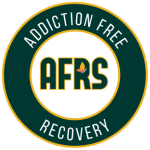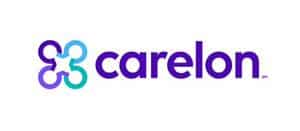Part of the nature of addiction recovery has much more to do than cure someone’s obsession with breaking bad habits. One aspect hasn’t been addressed well in recovery: nutrition and addiction recovery. A good diet may seriously affect healing within the body and mind in recovery.
Good nutrition assists in rebuilding the body, improves emotional control, and enhances cognitive capability. Nutrition is a critical component of recovery from addiction. This paper will describe the role of nutrition in addiction recovery, which nutrients are needed for addiction recovery, and how healthy eating for recovery from addiction can form long-term foundations of healing.
The Importance of a Healthy Diet in Recovery
Almost every area of life is affected by drug addiction, including nutrition. Malnutrition is the most common effect of drug abuse, as many active addicts skip adequate nutrition. These types of effects include a lack of crucial vitamins, minerals, and other nutrients necessary to preserve physical and mental well-being. This deficiency may cause many health conditions, such as weakening immunity or prolonged loss of cognitive ability and emotional imbalance.
Healthy eating can also help with the addiction recovery process by replenishing nutrients back into the body and healing its wounds. Insofar as nutrition is placed at the center of one’s recovery, both physical health and emotional and mental self-significant undertakings toward authentic and lifelong sobriety would be served.
A nutritious diet, aside from restoring lost nutrients, rehabilitates almost any damage produced by addiction. Alcohol and drugs may cause dehydration, liver damage, and even disarray of the brain that controls many aspects of our moods. Nutrition and addiction recovery of damaged systems go hand in hand with nutrition and recovery from addiction. The food we eat tends to be a natural cure to balance out the physical and emotional imbalances addiction has brought about.
Key Nutrients for Restoring Physical and Mental Health
A healthy, balanced diet with all the right nutrients can heal the body, both inside and out. The body must employ several vitamins, minerals, and macronutrients to repair the damage inflicted upon it due to substance abuse. Some of the main nutrients for addiction recovery include the following macronutrients:
Macronutrients: Building Blocks for Recovery
Carbohydrates, proteins, and fats are the three nutrients that the body needs for proper functioning, especially when recovering.
- Carbohydrates provide energy to the body, and to a recovering individual, they keep that person physically active throughout the day and always have energy at hand. Complex carbohydrates come best through whole grains, fruits, and vegetables, which help stabilize blood sugar and reduce cravings.
- Protein is essential for tissue repair and rebuilding muscles that may have been weakened during addiction. It also aids the brain in managing stress and regulating emotions. Good protein sources include lean meats, beans, eggs, and nuts.
- Healthy fats play many functions, including supporting brain function and emotional stability. As omega-3 fatty acids are present in fish, flaxseeds, and walnuts, their administration has been found to decrease levels of anxiety and depression, both of which are prevalent during the initial stages of recovery.
Micronutrients: Essential for Brain and Mood Regulation
In addition to macronutrients, the body needs different micronutrients, such as vitamins and minerals, which play a significant role in the recovery process from addiction.
| Micronutrients | Role in Addiction Recovery | Sources |
Vitamin B Complex | It is used to produce energy, in addition to the welfare of mental health. If the intake of B vitamins is lacking, there is likely to be depression, decay of cognition, and fatigue. This may need to be clarified for the recovery process. | Some sources of B vitamins include leafy greens, eggs, and whole grains. |
Magnesium | Magnesium is essential for mood regulation and anxiety relief. It helps the body to cope with stress, making it one of the most beneficial nutrients in recovering individuals. | Foods rich in magnesium contain spinach, nuts, seeds, and whole grains. |
Vitamin C | Vitamin C is an antioxidant that helps fight oxidative stress and the Inflammation caused by substance abuse. It also aids the immune system. | Citrus fruits, bell peppers, and broccoli Are the major sources of vitamin C. |
Zinc | Zinc is also one of the elements required to maintain the brain’s health and stable emotions. Anxiety and depression, both conditions that define recovery, have been linked with low levels of zinc. | Foods usually containing zinc include red meat, shellfish, legumes, and seeds. |
For addiction recovery, these nutrients are just as important to a person’s emotional health as they are to physical health. A healthy diet, rich in these vitamins and minerals, helps maintain a stable mood, reduce stress levels, and improve cognitive function, vital elements of recovery.
How Nutrition Impacts Mood and Cognitive Function
Nutrition and addiction recovery can have a direct effect on mood and cognitive functions. Often, substance abuse changes brain chemistry, explicitly altering neurotransmitters that govern mood and behavior. Proper nutrition can achieve neurotransmitter balance and restore emotional stability during recovery.
The Link Between Gut Health and Mental Health
The connection between gut health and mental health is an emerging area of research. The gut is known as the “second brain” due to the abundance of millions of nerve cells that communicate with the brain. Studies have proven that healthy guts improve mood, reduce anxiety, and help even cognitive functioning.
A diet rich in probiotics, prebiotics, and fiber supports gut and mental health.
- Probiotics. Yogurt, kimchi, and sauerkraut are fermented foods that contain beneficial bacteria for good gut health.
- Prebiotics. Fruits, vegetables, and whole grains feed the healthy bacteria in the gut for them to thrive.
Impact of Blood Sugar Levels on Mood
Blood sugar imbalances often manifest in mood swings, irritability, and cravings during recovery. Dieting on complex carbohydrates, healthy proteins, and fats helps regulate blood sugar and prevent mood swings based on sugar highs and crashes.
Nutrient-rich foods like leafy greens, berries, and nuts also help to prevent most of the associated physical and emotional symptoms of poor blood sugar control.
Challenges in Maintaining a Healthy Diet During Recovery
Healthy eating for addiction recovery is highly important for any individual recovering from addiction, however, many people encounter problems that make it hard to stay on a healthy diet during recovery. While some of these challenges are emotional, others are financial constraints, lack of fresh foods, and many more.

Emotional Eating and Cravings
Many recoveries develop disorders of emotional eating. Pressure and anxiety often lead individuals to eat comfort foods, which may contain a lot of sugar and unhealthy fats. While these foods make one feel better at the moment, they support the recovery process.
A critical part of nutrition and addiction recovery is learning to control emotional eating and cravings. A healthier alternative to comfort eating will always be a better path to positive results. Replacing processed snacks with nutrient-dense fruits, vegetables, and nuts can comfort and nourish an individual.
Financial and Practical Barriers
For many recovery addicts, money is also a factor in not being able to eat well. Fresh fruits and vegetables, lean meats, and whole grains thought necessary for a healthy body are relatively more expensive than most convenience or ready-to-eat foods.
Such barriers may be conquered through careful meal planning, smart shopping, and some prep work on meals before finally sitting down to enjoy them. Buying in bulk, frozen veggies, and getting one’s protein can be very economical and within reach.
Creating a Balanced Diet Plan for Long-term Recovery
This aspect of diet and recovery involves developing a balanced diet plan aimed at long-term healing and prevention of relapse. Recovery is, indeed, a marathon, not a sprint. A well-planned diet is, therefore, of high importance in maintaining health throughout.
Building a Balanced Plate
The majority of nutrient-rich food from the various food groups should be included in the balanced diet recovery plan. These are the following:
- Lean proteins. Chicken, fish, tofu, legumes
- Complex carbohydrates. Whole grains, sweet potatoes, quinoa
- Healthy fats. Avocados, olive oil, nuts
Strategic meal planning involving these whole foods can help ensure that the individual in recovery receives the nutrition needed to mend both body and spirit.
Portion Control and Mindful Eating
Mindful eating was about tuning into the cues for hunger and fullness as a way of eating intentionally and advising people to avoid overeating and emotional eating, thereby avoiding overeating and emotional eating that help prevent the onset of recovery. Eating slowly and in ways that considerably control portions will make one feel satisfied without the great reliance on food.
Practical Tips for Nutritional Support in Addiction Recovery
Some practical tips for smoother nutrition and addiction recovery regarding diet support during recovery can be taken.
| Tip | Description |
| Stay Hydrated | Dehydration can cause and worsen fatigue, headaches, and irritability, which can limit recovery benefits. Drink plenty of water during the day. |
| Snack Wisely | Snack on healthier foods such as nuts, seeds, and fruits rather than packaged, high sugar content, unhealthy fat snacking items. |
| Avoid Crash Diets | Crash diets or fad diets would result in nutritional imbalances. Just aim for sustainable, balanced eating habits. |
Embracing Nutrition as Part of a Holistic Recovery Journey
Healthy eating for addiction recovery is intended to help more than only physical improvement; it is a holistic approach to comprehensive recovery. Intake of nutritional food affects emotional stability and mental workings.
Using nutrition as part of healing can give one more energy, emotional balance, and a deeper sense of empowerment in recovery.
Call to Action
Plan your meals today to take control of your recovery through better nutrition. Let’s get you that ready nutrition for recovery. Contact us for personalized nutritional support and guidance suited to your recovery journey. Together we can fuel your healing process and forge a brighter future for better health.

FAQs
- How does nutrition impact addiction recovery?
Nutrition replenishes important vitamins and minerals stolen or depleted during substance abuse A healthy diet consists of some essential elements that build physical health, improve moods, support cognitive functions, and help regulate stress and cravings of these important components to recovery. Healthy eating for addiction recovery helps rebuild the body and mind, thereby making it easier to stay focused and energized during the healing process.
- What are the best nutrients for addiction recovery?
Some of the most useful nutrients for addiction recovery include vitamins and minerals: B vitamins provide energy and support mental well-being; magnesium is excellent for mood stabilizers; vitamin C helps your immune system improve; and omega-3 fatty acids keep your brain working properly. Carbohydrates, proteins, and healthy fats provide muscle energy, repair them, and increase the chances for good recovery. A diet rich in fruits, vegetables, whole grains, lean proteins, and healthy fats is instrumental in supporting your body’s healing.
- Can healthy eating help reduce cravings in addiction recovery?
Healthy eating for addiction recovery indeed helps to curb the craving with the stabilization of blood sugar levels so that one feels energy throughout the day; nutrient-dense food, high in protein and complex carbohydrates, can even help to prevent crash-related energy dips brought on by cravings. Foods with high levels of omega-3s, like fish, have also been proven to support brain health and assist in recovery efforts when managing cravings and keeping recovery at the top of mind.
- How can I maintain a healthy diet during recovery if I’m on a budget?
A frugal way of eating healthy is to plan meals wisely. Buy food in bulk. The vegetables purchased could be frozen. Use inexpensive sources of protein from beans and lentils to eggs. Meal planning saves time and money and provides healthy meals throughout the week. Focusing one’s food choices towards whole, minimally processed foods is a highly low-cost means of achieving all the nutrition, addiction recovery, and nutritional deficiencies.
- Is it important to have a personalized diet plan during addiction recovery?
A diet plan that is customized would be of outstandingly strong support toward addiction recovery since everybody’s nutrition levels are different. And in such a case, a tailored system would ensure you will receive the appropriate amount of nutrients suited for your recovery to progress. It also effectively helps in areas involving sensitive food issues, cravings, and emotional eating that may lead to deviations from health objectives.


























